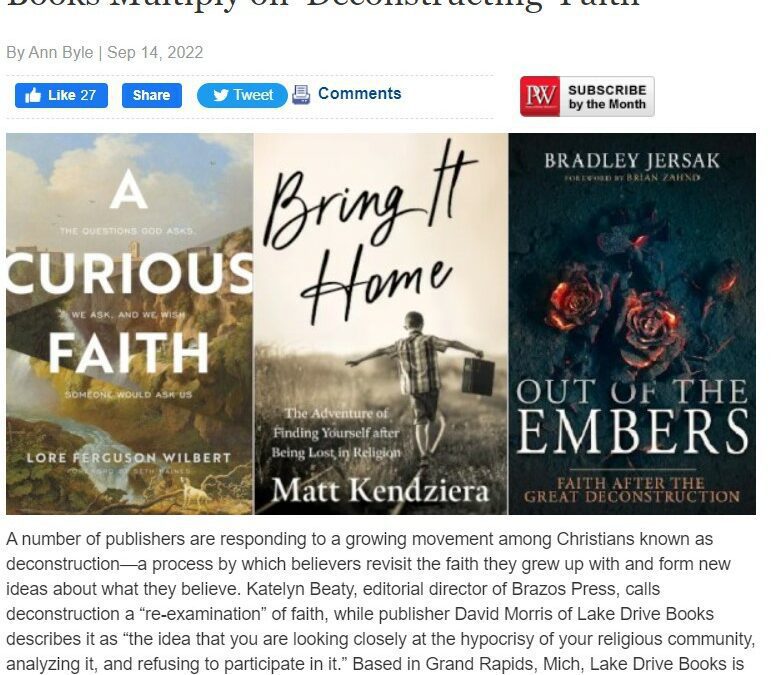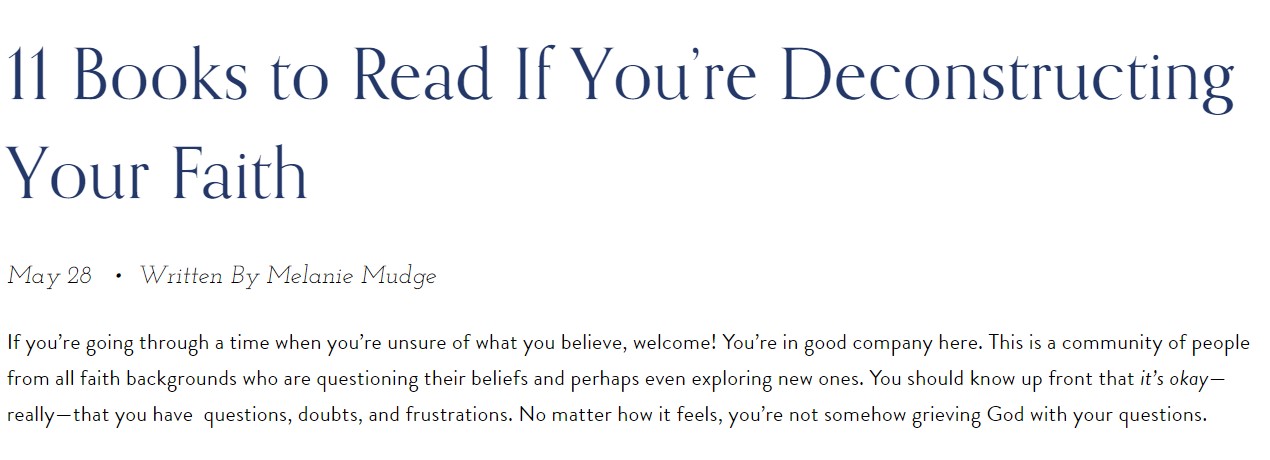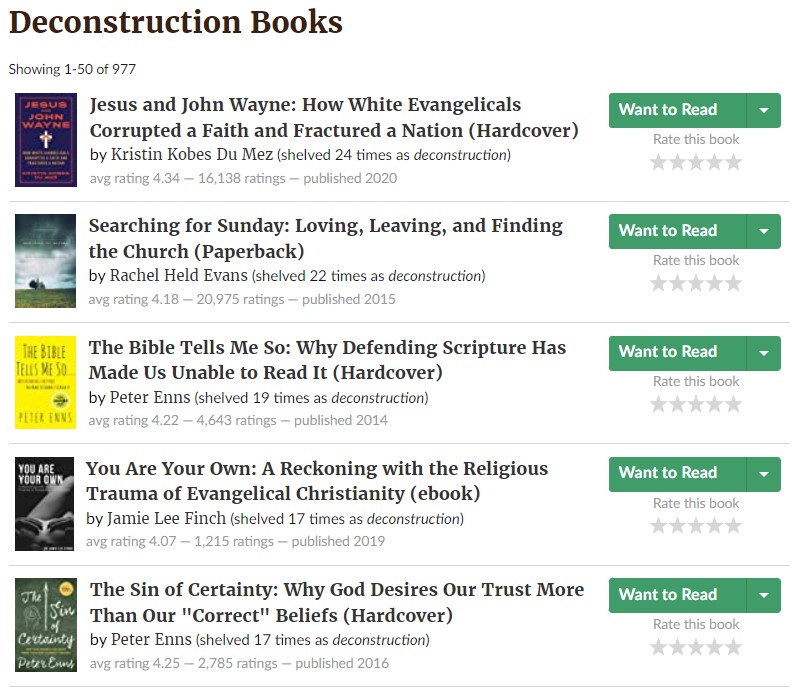It was good recently to see that the publishing industry’s flagship trade magazine, Publisher’s Weekly, offered a brief but significant story on books about faith deconstruction.
This term or phrase is new for so many and may appear to some as nothing more than trendiness, but it has also become common parlance to refer to the process so many people are now undergoing as they detach themselves from certain faith communities and the worldviews that are so crucial to those faith communities. If you’re wondering just how big this movement is, just do a little research for yourself on the trends about the decrease in church participation. There you’ll especially find The Pew Religious Landscape Survey’s tracking of waning religious affiliation or their recent report on “Modeling the Future of Religion in America” where they say that Christians will make up less than half the population within a few decades. No doubt that claim is made based on a number of reasons, like increasing diversity, but also perhaps for the reason that Christianity in America is changing. You might also just ask a few church goers whether they and their kids attend church as much as they did twenty or thirty years ago. Or take a look at the recent conferences such as the Deconstructing Faith Summit, Evolving Faith, Wild Goose, or the Post-Evangelical Collective, or do a search on religious trauma.
Defining Faith Deconstruction
To offer a quick definition, faith deconstruction is the process of examining the beliefs and practices of a religious tradition in order to see how those things are constructed, and to better understand the difference between what is a social, human made construction and what is truly religious, spiritual, or sacred. For example, perhaps the greatest catalyzing issue is whether or not religious communities will acknowledge, affirm, and fully include people who identify as queer to the extent that they are allowed to marry in church and assume roles in church leadership at any level. Those who are deconstructing their faith point to how communities that exclude queer folk from these opportunities are misusing sacred text by selectively focusing on a few short, seemingly condemning texts versus the weight of larger portions of text that talk about acceptance, non judgement, and love. These conversations have been ongoing, and include similar conversations about race and gender inclusivity. Also, here’s the Wikipedia entry on faith deconstruction.
Books on Faith Deconstruction
Books that might be considered in the faith deconstruction category are plentiful, tackling topics of race, gender, sexuality, but also offering analysis on how we understand the Bible, what we really think about original sin, and most recently, what’s going on with the outright conflation of religion and politics. Below are a few clickable images for what you’ll get with a search on books about faith deconstruction.
Here’s a suggested list from Google:
Here’s a list from the Sophia Society:
Here’s a list from Goodreads:
At Lake Drive Books, we’re glad to be entering this conversation about better understanding how religion in the U.S. is changing, and more than that, we want to help people find their way forward with positive outcomes when we say we publish “books that help you heal, grow, and discover.” So we’re grateful for the Publishers Weekly “Books Multiply on ‘Deconstructing’ Faith” article that offered some quotes by yours truly and mentioned Matt Kendziera‘s Bring It Home: The Adventure of Finding Yourself after Being Lost in Religion among books from other publishers.
No matter what you might think or perhaps find confusing about what’s going on with religious affiliation, attendance levels, and the general perceptions of religious communities in the U.S. or beyond, the change is widespread. Just compare it to what was called the Emergent Church movement of the early 2000s. That movement was more limited to a handful of authors who were mostly comprised of church leaders. Nowadays you see the movement in a far more widespread manner, somewhat thanks to the opportunities for people to find each other online (do another search for deconstruction, exvangelical, or faithfullyLGBTQ on Instagram, Twitter, or TikTok). So it’s good that book publishers are looking to resource—or in some unfortunate cases minimize or gaslight—this community. These books are doing some difficult but inspiring and enlightening work. Here they come.





